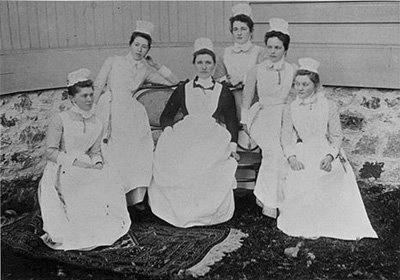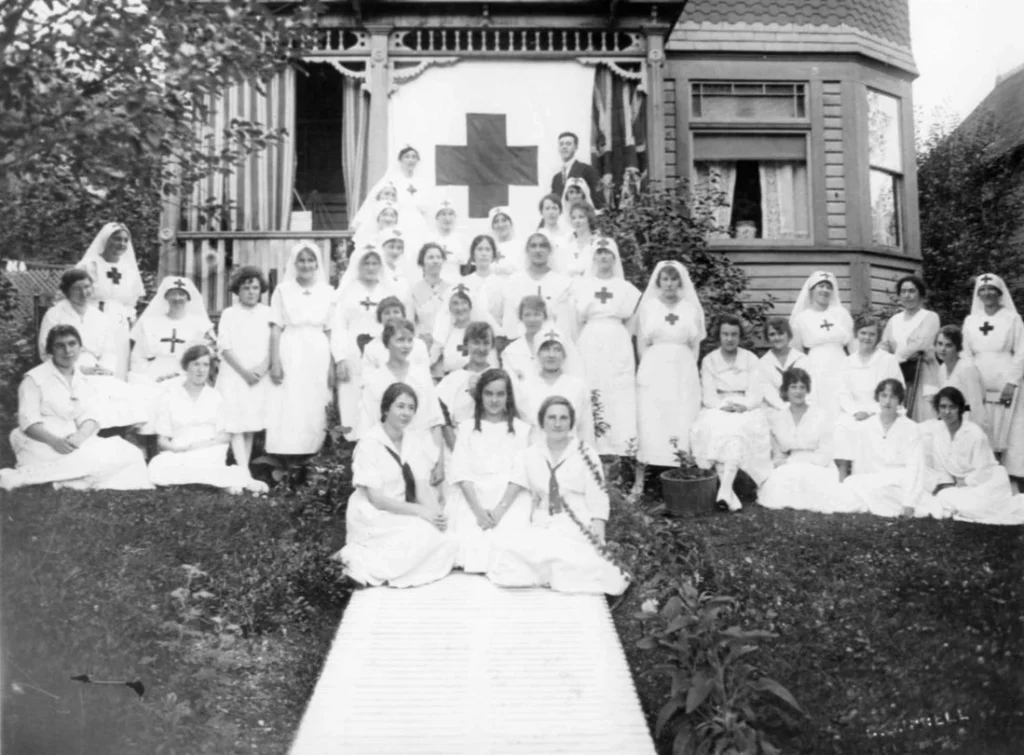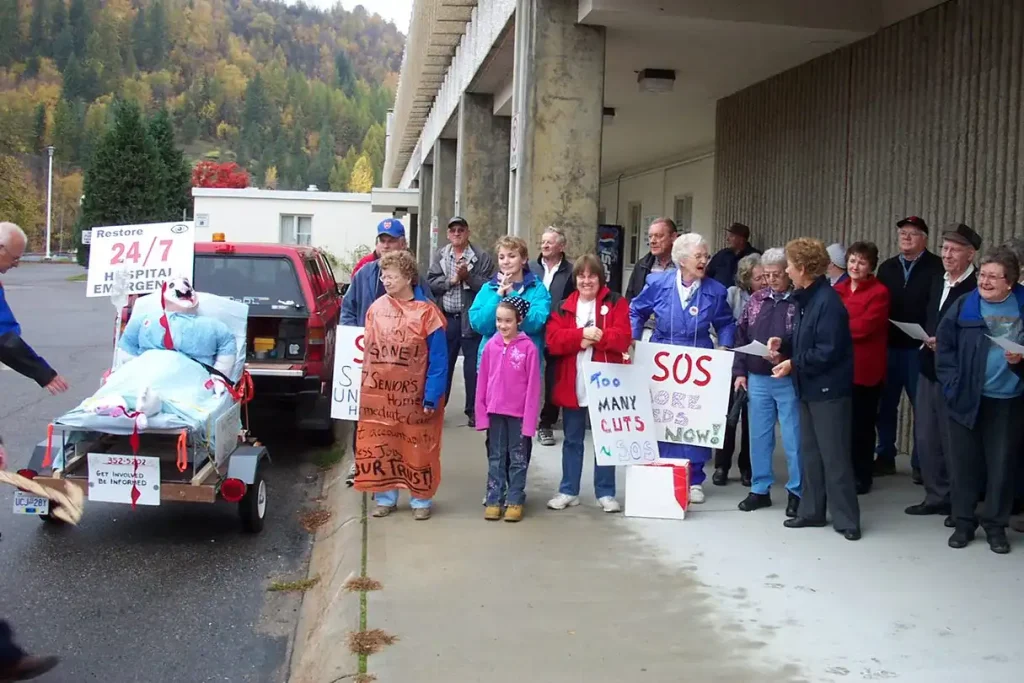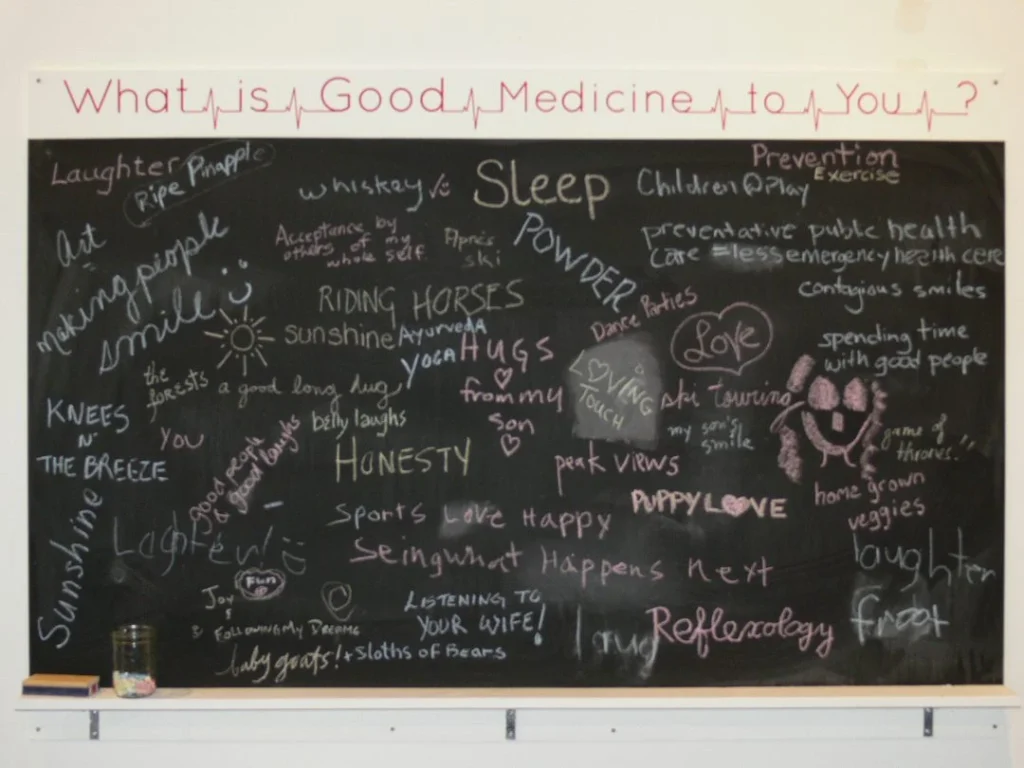Curated by Jessica Demers
What is “good medicine” to you?
Our definitions of health and our expectations of our healthcare system have changed through time in parallel with technological advancements and shifts in the cultural, economic and political landscape.
Our current standards for healthcare are a far cry from what was available when Nelson was first established. In 1887, Nelson was mostly inhabited by men; miners seeking their fortunes in silver and gold. Yet it was women who would come to offer the majority of healthcare services in this rough mountain town. Miners were grateful when the first nurse, Mother Foster, arrived. A little known figure in Black history of the Kootenays, she offered basic medical care as well as running a laundry, bath house, barber shop and, some say, a brothel. Other nurses and doctors began to arrive and private hospitals and maternity homes were established.
Perhaps the two most influential doctors in early Nelson were Dr. Isabella and Dr. Edward Arthur. One of BC’s first female doctors, Isabella was an advocate for women and children’s health and served as first health officer for the school district. She also served as the health officer for the city, replacing her husband’s post while he was overseas in WWI.
The first incarnation of the Kootenay Lake General Hospital was built in 1893, four years before Nelson was incorporated as a city. A small two-story wooden building, it offered both privately and publicly funded services. The second KLGH was built in 1918, just in time for the Spanish Flu epidemic which killed over 225 citizens, including the mayor. With the opening of the current Kootenay Lake Hospital in 1958, Nelson’s public healthcare services steadily rose.
However, when the BC Liberals came to power in 2002, their goal to “reduce costs and improve efficiency” of the healthcare system led to a movement towards centralization of health services. The community fought hard to resist the cuts, and while the maternity ward was saved, the Intensive Care Unit and two general surgeon positions were cut. Trail became the regional hospital, forcing residents in outlying areas to travel farther for care during certain high risk medical emergencies and for complex surgical procedures.
Although the protests could not stop the cuts, other victories followed, including the CT scanner campaign. $1.5 million was raised within only 18 months. The success of this campaign was the result of broad-based community support and is an example of what is possible when the people come together to advocate for improved services.
The stories that are told throughout this exhibit are ones of vision, struggle, collaboration, hard won victories and at times loss. Through conducting research for this exhibit, I have gained a deeper appreciation for this community’s healthcare pioneers and advocates
The Community Conversation
In conjunction with the exhibit Good Medicine: Nelson’s Healthcare History, we will also be hosting a Community Conversation About the Wealth/Health Connection and Social Determinants of Health. Research shows that medical care only accounts for about a quarter of health outcomes, while half of a person’s ability to heal and recover from illness is determined by socio-economic factors.
What is being done in our community to meet our basic human needs, and what can be done to fill in the gaps? How can healthcare practitioners and social service groups work together to ensure better health outcomes for everyone? The Community Conversation will bring members of the public together with local leaders in healthcare, social services and food security for a night of exchange, co-inspiration and future visioning. The event will begin with an overview of the social determinants of health by Public Health Consultant Diana Daghofer. Panelists are Cheryl Dowden, Executive Director of ANKORS and Co-Chair of Nelson Committee on Homelessness, Corrine Younie, Coordinator of the Age Friendly Project, Kim Charlesworth, General Coordinator of the Nelson Food Cupboard, Valerie Warmington, Executive Director of Kootenay Kids and Dr. Lee MacKay, Family Physician at the Medical Associates Clinic in Nelson. The Conversation will be moderated by Rona Park, Executive Director of Nelson Community Services. Join the conversation and be inspired by the innovative projects being done in Nelson.
Exhibition Didactics
Good Medicine: Nelson’s Healthcare History
Working Conditions for Nurses at KLGH 1983-1950
European Contact with First Peoples and the Spread of Disease
Traditional Indigenous Healthcare
Nelson Academy of Oriental Sciences (ACOS)



